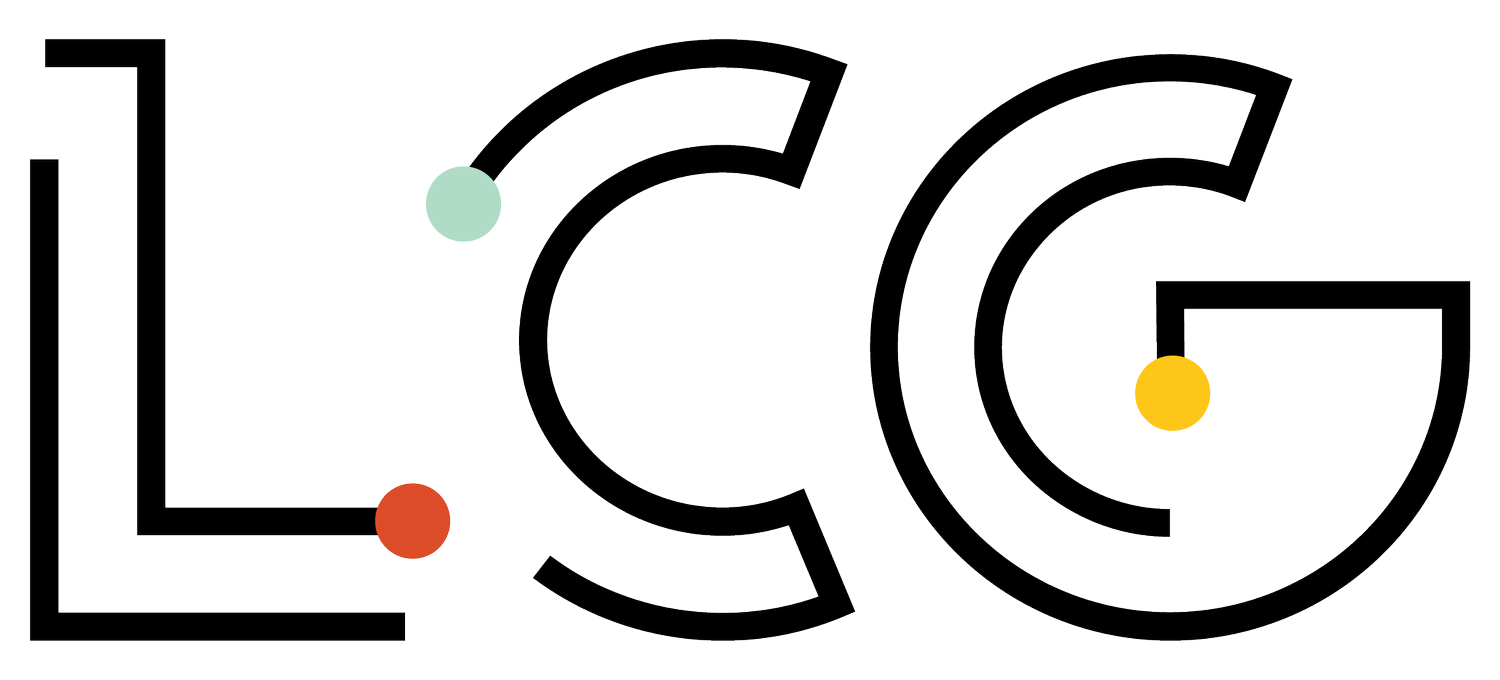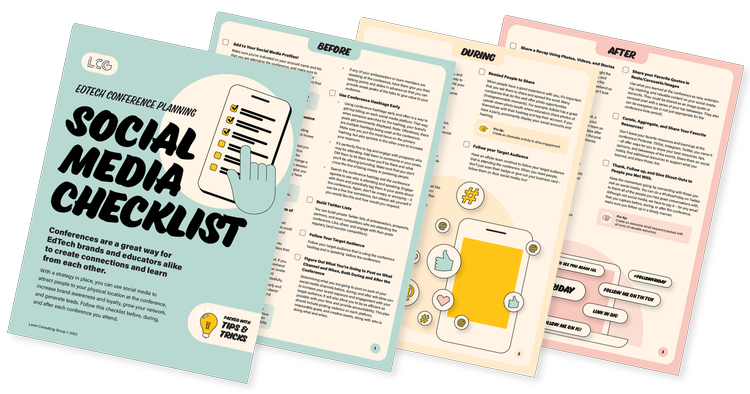Volume 32
March is typically one of the busiest months of the year in EdTech. A majority of conferences happen (SXSWEdu, MACUL, CUE, NSTA, ASCD, and so many more), and EdTech companies are busy conducting demos and webinars and creating helpful content to ensure they are on any school or district's radar, as purchasing decisions are being made for the following school year this summer.
Although educators may have had spring break, they may now be busy preparing for standardized tests and continue to face chronic absenteeism. Education administrators are doing everything they can to retain, cut, and purchase the right amount of technology and services to ensure a successful 2024-2025 academic year within their first year of no ESSER funding (known to many as the ESSER cliff). On top of that, administrators begin to look at staffing for the upcoming school year while being faced with a continued teacher shortage.
March plays a critical role in EdTech purchases, and it’s also an opportune time to set yourself up to end the year strong. But the question remains: What do you do when you have too much to do?
I can tell you what you cannot do: Give into any of your perfectionism tendencies. Many studies have concluded that not only are a majority of people affected by perfectionism, but it's also on the rise. It can lead to high levels of anxiety, overall inaction, and ultimately burnout. And especially in this fast-paced month, where it's necessary to do a lot – and quickly – perfectionism can sink even the most confident swimmer.
In my twenties, I learned a valuable lesson about perfectionism that helped me navigate high-intensity times like this, which I'd like to share with you. ⬇️
I have always had a love for creating ceramics. I used to spend hours trying to craft the perfect vase, plate, or bowl, and when it wasn't perfect (which was most times), I'd feel like a failure and stop creating. I expressed my frustration to a good friend, who explained the Japanese concept of Wabi Sabi. She told me that the Japanese liked to keep and even cherished their imperfect pieces of pottery, as they were unique, unlike the sea of identical pottery objects.
This concept of embracing imperfection is beautifully illustrated through a Japanese art called Kintsugi, where broken or imperfect objects are repaired with gold to celebrate their imperfection and illuminate the "flaw" as a unique part of the object's journey that adds to their beauty. (Check out this Pinterest collection to see it come to life!)
These concepts initially fueled me to keep creating. Although I still wasn't necessarily celebrating my less-than-perfect outputs, I was able to give myself grace and accept that whatever was created represented my journey. Ironically, the more I created, the more I became better.
I challenge you to look back at everything you did in March. While not everything may have unfolded flawlessly, perhaps there's a moment to embrace the beauty in those missteps and press on. When you begin to doubt yourself, lose confidence, and revert to being a perfectionist, remember the art of Kintsugi.
Take care,
Elana
[Free Download] Social Media Conference Checklist
Conference season is upon us! This checklist lists the many things EdTech brands can do on social media to gain brand awareness, engagement, and sales from every conference they attend.
EdTech Product Design That Improves Learning Outcomes: A Conversation with Thor Prichard (podcast)
Q2 2024 Spring Events, Conferences, and Birthdays in Education (blog post)
The Role of Student Voice in K-12 Educational Reform: A Conversation with Milton Chen (podcast)
[Popular] Leveraging Media for EdTech Success: A Conversation with Thomas Rodgers (podcast)
Marketing/community:
Air Canada’s Chatbot Fail Should Propel Marketers To Address These AI Questions - Content Marketing Institute
Community-Driven Advocacy – How To Drive Growth From An Existing Community - Feverbee
The social media benchmarks to guide your 2024 strategy - Emplifi
3 Built-In LinkedIn Tools to Boost LI Marketing Strategies - Social Pilot
[BONUS] Teens Spend Average of 4.8 Hours on Social Media Per Day - Gallup
Education
School Districts’ Top Purchasing Priorities for 2024-25 – EdWeek Market Brief
PROOF POINTS: The surprising effectiveness of having kids study why they failed – Hechinger Report
Some Thoughts on Teachers Crying in the Classroom – Cult of Pedagogy
Where are all the teachers? Breaking down America's teacher shortage crisis in 5 charts. – USA Today
US Teachers Spent $3.24 Billion of Their Own Money on Classroom Expenses in 2023. – MyeLearningWorld
The EdTech Marketer's Planner - Extended Edition
Our first-ever Extended Planner was created to help you easily create a marketing and content plan that generates leads. It includes helpful templates, strategies, editable calendars, and more.
P.S.: Our early bird pricing just ended, but you can use the code PLANNER10 at checkout to get a 10% discount (expires March 9).
Content Internship (Part-time) - Readworks
Chief Program Officer - Gradient Learning
Leader Coach - Gradient Learning
Literacy Program Associate, WestEd
B2B Marketing Associate Director - Kelly Education
Product Marketing Manager - TalkingPoints
Director, PR and Marketing Content Strategy - ISTE - ASCD
Senior Vice President, Development - News Literacy Project
Director, Workforce Communications - Whiteboard Advisors
Sales Development Representative - Go Fuel Sales
Executive Director - Playworks
Executive Assistant - Reach Capital
Director of Marketing, ImPACT - Riverside Insights
Content Strategist - FINN Partners
Director of Strategic Learning and Impact - University Innovation Alliance
Partnerships Director - Springboard Collaborative
Marketing Associate - Reach Capital
[Bonus Education Opportunities]
Funding
New Schools is awarding funding for groundbreaking ideas that reimagine the role of educators, empower students with learning differences, or improve literacy and math outcomes. Apply by April 3.
The Learning Accelerator is offering $150,000 in flexible grant support for applications for its Exponential Learning Initiative, which seeks to advance the scaling of high-quality, virtually supported approaches to K-12 learning acceleration at the core of learning. Apply by May 5.
Student Contests
Get high school students to team up and learn about and use AI tools to design solutions for real-world problems. The top three teams will be flown to Denver to present at ISTELive 24. Apply by April 12.
ReadWorks’ Earth Day Illustration Contest is a fun opportunity to get your 2nd - 5th-grade students to celebrate the National Fish and Wildlife Foundation (NFWF)’s birthday! Submit entries by April 26th, 2024.
[BONUS]
[Cool science alert] The next total solar eclipse to visit North America will be April 8, 2024. The duration of totality will be up to 4 minutes and 27 seconds. It's almost double the eclipse duration from the previous 2017 record and has a greater viewing area than was accessible back then. Let us know if you go see it!








